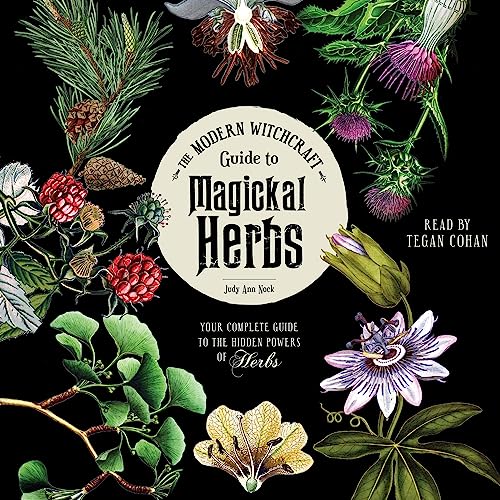Edible flowers have been used in culinary traditions around the world for centuries. Besides adding vibrant colors and delicate flavors to dishes, edible flowers also offer various health benefits. From enhancing the visual appeal of your meals to providing essential nutrients, incorporating edible flowers into your diet can be a delightful and healthy choice. Let’s explore the ways you can benefit from edible flowers.
1. Nutritional Benefits
Many edible flowers are rich in essential nutrients, including vitamins and minerals. For example, nasturtiums are a good source of vitamin C and contain high levels of antioxidants. Similarly, the petals of chrysanthemums are packed with beta-carotene, which is beneficial for eye health. By incorporating a variety of edible flowers into your diet, you can increase the diversity of nutrients in your meals, contributing to overall health and well-being.
2. Culinary Versatility
Edible flowers add a touch of elegance and beauty to any dish, making them an excellent choice for enhancing the visual appeal of your culinary creations. Whether used as a garnish on salads, infused into syrups for cocktails, or crystallized for cake decorations, edible flowers offer endless culinary possibilities. Their delicate flavors can range from floral and sweet to spicy and tangy, allowing you to experiment with different taste profiles and create unique dining experiences.

Credit: www.facebook.com
3. Natural Healing Properties
Several edible flowers have been used in traditional medicine for their healing properties. Calendula, for instance, is known for its anti-inflammatory and antiseptic qualities and is often used in herbal remedies. Similarly, lavender has calming effects and is commonly used in teas to promote relaxation. By incorporating these flowers into your diet, you can potentially harness their natural healing benefits and support your overall well-being.
4. Environmental Sustainability
Growing and consuming edible flowers can contribute to environmental sustainability. Many edible flowers are easy to cultivate and require minimal resources, making them a sustainable addition to home gardens and kitchen landscapes. By opting for locally grown edible flowers, you can reduce the environmental impact of your food choices and support eco-friendly practices. Additionally, promoting the use of edible flowers can inspire a greater appreciation for diverse plant species and encourage sustainable gardening practices.
5. Artistic Presentation
Using edible flowers for culinary presentation adds an artistic and creative dimension to your meals. Whether you’re entertaining guests or simply enjoying a meal at home, edible flowers can elevate the dining experience by providing a visually stunning backdrop. Their vibrant hues and delicate shapes can transform ordinary dishes into works of art, allowing you to express your culinary creativity and offer a memorable dining experience to those you share your meals with.

Credit: boboandboo.com
6. Unique Flavor Profiles
Each edible flower offers a unique flavor profile that can enhance the taste of your dishes. For example, rose petals impart a floral, slightly sweet flavor, while elderflower blossoms contribute a delicate and aromatic essence to recipes. By experimenting with different edible flowers, you can introduce an array of subtle and nuanced flavors to your cooking, adding depth and complexity to your culinary creations. Whether used in savory or sweet dishes, edible flowers can infuse your meals with captivating tastes.
7. Immune-Boosting Properties
Some edible flowers contain compounds that are believed to support immune function. For example, elderflowers are rich in flavonoids, which have antioxidant and immune-boosting properties. Incorporating these flowers into your diet may provide a natural way to strengthen your immune system and promote overall health. By including immune-boosting edible flowers in your meals, you can contribute to your body’s defense against environmental stressors and maintain a resilient immune system.
Frequently Asked Questions Of How To Benefit From Edible Flowers: Unlock The Hidden Power Of Petals
How Can I Benefit From Edible Flowers?
Edible flowers not only add a touch of beauty to your culinary creations but also offer unique flavors and health benefits.
Which Edible Flowers Are Safe To Eat?
Some popular edible flowers to try include roses, lavender, violets, pansies, and marigolds. However, always ensure the flowers are organic and free from pesticides.
How Can I Incorporate Edible Flowers Into My Dishes?
You can use edible flowers as a garnish, in salads, infused into syrups, or even crystallized as a sweet treat. Be creative and explore different ways to incorporate them into your recipes.
Do Edible Flowers Have Any Health Benefits?
Yes, some edible flowers like calendula and chamomile have anti-inflammatory properties, while others, like lavender, can help promote relaxation and reduce anxiety.
Conclusion
With their nutritional benefits, culinary versatility, natural healing properties, and environmental sustainability, edible flowers offer numerous ways to enhance your diet and overall well-being. By embracing the use of edible flowers in your culinary pursuits, you can tap into a world of flavors, colors, and health-enhancing properties that elevate your meals and create a more holistic approach to nutrition. Whether you’re a seasoned chef or an enthusiastic home cook, integrating edible flowers into your dishes can open up a realm of possibilities for enriching your culinary experiences.
